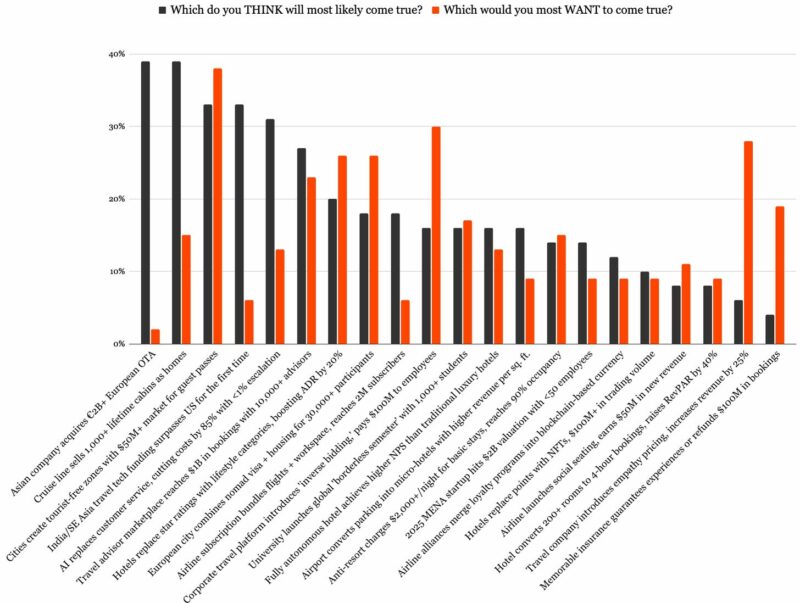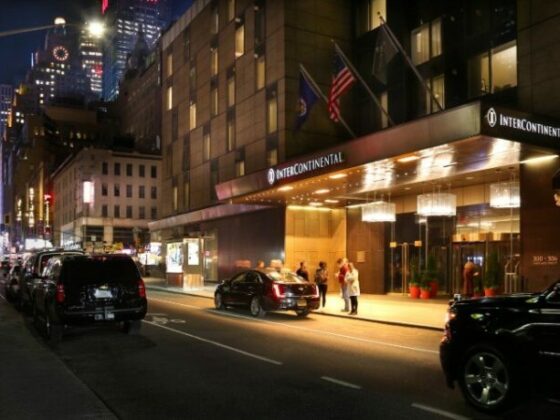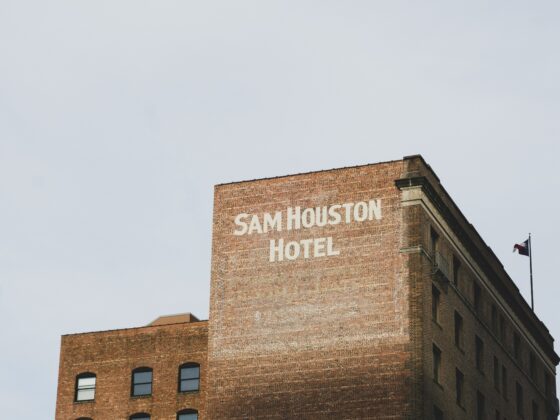
Efficiency and collaboration are vital to delivering exceptional guest experiences in hotels. Guests now expect seamless service, personalized interactions, and prompt responses to their needs. To meet rising expectations, hotels must ensure all their departments work together smoothly.
Many hotels still rely on specialized, single-user systems managed by individual departments or team members. For instance, the revenue manager might use a dedicated revenue management system that only they can access, while the sales team uses a separate customer relationship management tool. This compartmentalization leads to operational silos, where vital information is not readily shared across the organization. Such silos can hinder communication, slow down decision-making, and create inconsistencies in the guest experience.
This blog explores the importance of transitioning to multi-user systems in hotel management and the benefits they bring to the entire organization. By embracing platforms that promote shared access and collaboration, hotels can break down these silos, enhance operational efficiency, and deliver a more cohesive and satisfying experience to their guests.
Understanding Multi-User Systems
Definition of Multi-User Systems
Modern hotel management needs systems to handle complex tasks and facilitate collaboration among various departments. Multi-user systems are software platforms designed to meet this need by allowing multiple users to access, interact with, and modify data simultaneously. These systems handle concurrent operations without compromising data integrity or system performance.
In contrast, single-user systems restrict access to one person or department. For example, a revenue management system used exclusively by the revenue manager may not be accessible to the sales or front desk teams. While these specialized tools can be effective for individual tasks, they often create information silos that hinder overall operational efficiency.
By promoting shared access and collaboration, multi-user systems break down these silos. They enable different departments—front office, housekeeping, sales, and marketing—to work from a common platform. This unified approach ensures everyone is on the same page, reducing misunderstandings and aligning efforts toward the hotel’s overarching goals.
Characteristics of Multi-User Systems
To fully appreciate the benefits of multi-user systems, it’s essential to understand their key characteristics:
Concurrent Access
Multi-user systems handle multiple users working simultaneously without conflict or data corruption. Multi-user means that team members can perform their tasks in real-time, whether updating reservations, adjusting pricing strategies, or logging guest preferences. The system manages these simultaneous operations through sophisticated data handling and user session management, ensuring smooth and efficient workflows.
Role-Based Permissions
Security and relevance are crucial when multiple users access the same system. Multi-user platforms incorporate role-based permissions, allowing administrators to define access levels and functionalities based on each user’s role within the organization. For instance, a front desk agent might have access to reservation details and guest check-in functions, while a sales manager can view and modify group bookings and revenue reports. This customization ensures employees have the necessary tools without unnecessarily exposing sensitive information.
Centralized Data Management
Central to the effectiveness of multi-user systems is the concept of centralized data management. The system stores all data in a single, unified database, serving as the definitive source of information for the entire organization. This centralization offers several advantages:
- Consistency: Since all departments access the same data, inconsistencies and discrepancies are minimized. For example, if a guest updates their contact information, that change is instantly reflected across all departments.
- Real-Time Updates: Any user’s changes are immediately visible to others. This real-time visibility is crucial in a hotel environment where situations like last-minute bookings or cancellations can change rapidly.
- Data Integrity: Centralized systems reduce the risk of data loss or duplication, as there is a single point of truth. Regular backups and security protocols protect the data from corruption or unauthorized access.
By embodying these characteristics, multi-user systems provide a robust foundation for hotels to enhance collaboration, improve efficiency, and deliver superior guest experiences. They enable staff to work cohesively, leveraging shared information to make informed decisions quickly and accurately.
The Limitations of Siloed Systems
While specialized, single-user systems have their place in handling specific tasks within a hotel, they often introduce significant limitations that can hinder overall operational effectiveness. These siloed systems, confined to individual departments or users, create barriers that impede communication, efficiency, and strategic alignment across the organization.
Operational Inefficiencies
Delayed Decision-Making
Siloed systems can cause significant delays in an environment where timely decisions are crucial. Information bottlenecks arise when only one person or department controls critical data. For example, suppose the revenue manager is the sole custodian of pricing and occupancy data. In that case, other departments like sales or marketing must wait for reports or updates before acting. This lag hampers the hotel’s ability to respond swiftly to market changes, guest inquiries, or operational issues.
Duplication of Efforts
Separate systems often lead to redundant tasks across departments. Different teams might unknowingly perform overlapping functions without a shared platform, wasting valuable time and resources. For instance, revenue management and housekeeping might maintain separate forecasts for occupied rooms, leading to inconsistencies and repeated data entry. This duplication not only reduces efficiency but also increases the likelihood of errors.
Poor Communication
Information Gaps
The lack of shared access inherent in siloed systems hinders effective team communication. When departments operate in isolation, essential information may not reach those who most need it. For example, if the marketing team launches a promotion without real-time access to inventory data, they might overpromise availability, leading to guest dissatisfaction. These information gaps can result in missed opportunities and decreased service quality.
Misaligned Goals
Isolated data can cause departments to pursue conflicting objectives. Without a unified view of the hotel’s performance and goals, each team might focus on its KPIs without considering the broader impact. For instance, the sales team might prioritize booking large groups to meet their targets. At the same time, the revenue manager aims to maximize room rates, leading to internal conflicts and suboptimal revenue management.
Risk Factors
Dependency on Key Individuals
Over-reliance on specific employees who control single-user systems introduces significant risk. If that individual is unavailable due to illness, vacation, or departure from the company, access to critical information may be lost or delayed. This dependency can disrupt operations and make it challenging to maintain continuity. Moreover, valuable institutional knowledge may be lost if processes are not documented and shared.
Data Inconsistencies
Disparate systems often create conflicting information because departments do not synchronize data. For example, the hotel PMS might contain duplicates and show corporate production differently from the manually updated Excel sheets used by the sales team. These inconsistencies can lead to missed opportunities, incorrect communication with travel managers, and false evaluation of customer profitability. They also make it difficult to generate accurate reports, hindering strategic planning and financial forecasting.
Siloed systems pose significant challenges that can negatively impact a hotel’s efficiency, communication, and ability to make informed decisions. By understanding these limitations, hotel management can recognize the need for integrated solutions that promote collaboration and data sharing across all departments. Transitioning to multi-user systems addresses these issues by providing a unified platform that supports the entire organization’s objectives.
Benefits of Multi-User Systems in Hotels
Implementing multi-user systems in hotel management offers many benefits that enhance operational efficiency, improve guest satisfaction, and contribute to the hotel’s overall success. Below are the key advantages:
Enhanced Collaboration
Seamless Communication
Multi-user systems enable teams to easily share information and updates in real-time. Communication barriers are eliminated when all departments have access to the same platform. For example, if the front desk updates a guest’s reservation with a special request, housekeeping, and room service can see this change instantly and prepare accordingly. This immediate flow of information ensures everyone is aligned and can act swiftly to meet guests’ needs.
Unified Objectives
Shared data ensures that all departments work towards common goals. With access to the same metrics and reports, teams can align their strategies and understand how their roles contribute to the hotel’s overall performance. For instance, the marketing team can coordinate promotions with the revenue management team’s pricing strategies, optimizing occupancy rates and revenue.
Increased Efficiency
Streamlined Operations
Multi-user systems standardize processes across the organization. A unified platform reduces repetitive tasks and improves workflow efficiency. For example, check-in and check-out procedures can be frictionless when front desk staff and housekeeping all access and update the same information.
Time Savings
Eliminating the need for manual data transfer between systems saves significant time. Staff no longer need to input the same data into multiple systems or generate separate reports for each department. This efficiency allows employees to focus on more strategic tasks, such as enhancing guest experiences or developing new services.
Improved Data Accuracy and Transparency
Real-Time Updates
With centralized data management, information is consistently current and reliable. Any changes made are immediately reflected across the system, reducing the likelihood of errors. For instance, if a room is out of service due to maintenance, all departments are aware instantly, preventing accidental bookings and guest inconvenience.
Data-Driven Decisions
Access to comprehensive data enables informed strategic planning. Management can analyze trends, monitor key performance indicators, and make decisions based on accurate, up-to-date information. This data-driven approach leads to more effective marketing campaigns, pricing strategies, and service improvements.
Better Guest Experience
Personalized Service
Staff can access guest preferences and history to tailor services accordingly. This information is readily available to all relevant departments if a returning guest prefers a particular room type or has dietary restrictions. Personalization enhances guest satisfaction and fosters loyalty.
Swift Issue Resolution
Quick access to information allows for prompt problem-solving. If a guest encounters an issue, any staff member can access their profile and reservation details to address the problem efficiently. This responsiveness improves the guest’s perception of the hotel’s service quality.
Scalability and Flexibility
Adapting to Growth
Multi-user systems can accommodate more users and data as the hotel expands. The system scales without compromising performance, whether adding new rooms, facilities, or even additional properties. This adaptability is crucial for hotels’ growth planning.
Customization
Role-based access allows the system to meet diverse departmental needs. Each user can have specific permissions and functionalities tailored to their role, ensuring that staff have the necessary tools without unnecessary complexity or security risks.
Risk Mitigation
Business Continuity
The hotel minimizes vulnerability associated with staff turnover or absences by reducing dependency on key individuals. Since critical information is stored centrally and accessible by authorized personnel, operations can continue smoothly even if a key employee is unavailable.
Compliance and Security
Centralized systems often have robust security features and audit trails. These features help protect sensitive data and ensure compliance with regulations such as GDPR or other data protection laws. Audit trails also enable the hotel to monitor system access and changes, adding an extra layer of security and accountability.
Embracing multi-user systems transforms hotel operations by fostering collaboration, enhancing efficiency, and delivering superior guest experiences. By breaking down departmental silos, hotels position themselves to be more agile, responsive, and competitive in an ever-evolving industry. The transition to such systems is a technological upgrade and a strategic move towards a more integrated and successful organizational model.
Demand Calendar: A Multi-User Solution for Modern Hotels
While many business intelligence systems in the hospitality industry are typically designed as single-user tools—primarily utilized by the revenue manager or the CFO—Demand Calendar breaks the mold by offering a genuinely multi-user platform. This innovative system is accessible and beneficial to a wide range of roles within a hotel, including marketing, sales, revenue management, operations, housekeeping, finance, the general manager, and even corporate headquarters analyzing a portfolio of hotels.
In a typical hotel, Demand Calendar sees daily logins from 5 to 10 users, each tapping into the platform to gain insights and make data-driven decisions relevant to their specific responsibilities. Here’s how different roles leverage the system:
- Marketing Teams: Analyze booking patterns, guest demographics, and campaign performances to tailor marketing strategies effectively.
- Sales Departments: Monitor group bookings, track leads, and identify upselling opportunities to boost revenue.
- Revenue Managers: Adjust forecasts in real-time based on occupancy rates, market demand, and competitor analysis.
- Operations and Housekeeping: Easy access to forecasts to allocate staff efficiently, manage inventory, and ensure optimal resource utilization.
- CFOs and Finance Teams: Access comprehensive financial reports to oversee budgets and control customer acquisition costs to enhance profitability.
- General Managers: Obtain a holistic view of the hotel’s performance across all departments to make informed strategic decisions.
- Corporate Headquarters: Analyze data across multiple properties to ensure consistency, identify trends, and implement best practices.
Demand Calendar exemplifies the advantages of multi-user systems by providing a unified platform that serves multiple users and departments. It fosters collaboration by ensuring everyone can access the same real-time data, aligning efforts and strategies across the organization. This shared access eliminates silos, reduces the risk of miscommunication, and enhances overall efficiency.
Moreover, empowering various team members with actionable insights promotes a culture of data-driven decision-making. Staff at all levels can contribute to the hotel’s success by making informed choices in their daily tasks. For example, a housekeeping manager can adjust staffing schedules based on projected occupancy, while a sales executive can tailor proposals using up-to-date revenue data.
Demand Calendar streamlines operations and enhances the guest experience. When synchronized and informed, departments can work together seamlessly to meet and exceed guest expectations. The result is a more responsive, agile, and competitive hotel.
By embracing a multi-user system like Demand Calendar, hotels can unlock the full potential of their teams, harness the power of shared information, and drive sustained growth and profitability.
Conclusion
Transitioning to multi-user systems in hotel management is not just about adopting new technology—it’s about transforming how your team collaborates and operates. By breaking down silos, these systems foster enhanced collaboration among all departments, leading to increased efficiency and a unified approach to delivering exceptional guest experiences. When information flows freely and teams work together seamlessly, the hotel can respond more quickly to market changes, guest needs, and operational challenges.
Multi-user systems break down silos, fostering collaboration, efficiency, and better guest experiences.
Staying ahead of the competition requires continuous innovation and adaptation. Evaluating your current systems is a crucial step toward improvement. Hotels should assess their existing technologies and consider transitioning to multi-user platforms to stay competitive. This shift enables your organization to harness your team’s collective expertise, make data-driven decisions, and provide a level of service that sets you apart from the competition.
Embracing technology that promotes teamwork enhances operations and sets the stage for long-term success in the hospitality industry. By investing in systems that encourage collaboration and efficiency, you position your hotel to meet the evolving demands of guests and the market. This strategic move can lead to sustained growth, improved guest satisfaction, and a stronger, more cohesive team committed to excellence.







